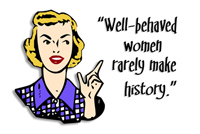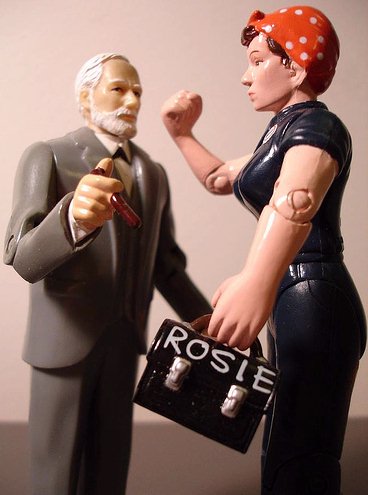 |
||||
|
Intro to Marxist Feminism
An Introduction to Marxist FeminismBy Helen Gilbert Marxist feminists are feminists who ally themselves with the philosophical and economic theories of Karl Marx, who discovered the economic laws underlying capitalism and wrote about them in his masterpiece, Capital. In this and other works, Marx and his lifelong collaborator Frederick Engels laid the foundations of Marxist economics, the philosophical concept of dialectical materialism, and the method of social analysis known as historical materialism. Marx showed how the working class is exploited for profit by capitalists, who gain wealth by paying workers a bare minimum of the value they produce. Marxist feminists view the capitalist drive for profits as responsible for women's second-class status and other forms of oppression such as racism and homophobia. Prejudice and privilege also aid the ruling class by inhibiting workers from organizing together. Women workers are exploited at a higher level than males, with women of color suffering the highest degree of exploitation because of gender and race discrimination. Women are also a source of unpaid domestic labor—an arrangement that allows the world's capitalists to save trillions of dollars every year. In Origin of the Family, Private Property and the State, Frederick Engels drew on the work of early anthropologists to show how women's oppression developed in pre-history when communal, matrilineal societies were violently replaced with patriarchal societies in which individual wealth and private property were key. (Patriarchal, profit-driven societies became dominant by conquest and colonialism, though remnants of matrilineal culture survived in tribal societies throughout the world.) From a position of early leadership and respect, women became powerless domestic slaves. Engels describes this as "the world historic defeat of the female sex." Marx and Engels viewed women's entry into the paid labor force as the first step toward liberating women from stifling dependence on men, though it does not free them from the class oppression they share with male workers. To achieve the full liberation of women and of the multi-racial, working class of all nations, international socialism is necessary, which is in essence a return in modern form to the cooperative egalitarian foundations of early human existence.
Marxist feminism is essentially the same as socialist feminism and materialist feminism, though some academics have defined the terms in ways that construe differences. Radical Women (www.RadicalWomen.org) is the main contemporary women's organization whose activism is based on Marxist or socialist feminism. The group has branches in a number of U.S. cities, plus Australia and El Salvador. Its history, analysis of women's oppression, and organizing platform are summarized in The Radical Women Manifesto: Socialist Feminist Theory, Program, and Organizational Structure (www.redletterpress.org/rwmanifesto.html). Radical Women has also written a series of brief booklets on feminist issues that are available from Radical Women Publications. (www.redletterpress.org/rwpubs.html)
Other Works concerning Marxist Feminism:Postmodern Marxist Feminism in Shakespeare Marxist & Materialist Feminism Bebel, August. Woman and Socialism. Schocken, 1971. Fraser, Clara. Revolution, She Wrote. Red Letter Press, 1998. Lenin, V.I. The Emancipation of Women. International Publishers, 1969. For a selection of writings by Lenin on women click here. Martin, Gloria. Socialist Feminism: The First Decade, 1966-76. Freedom Socialist Publications, 1978. Marx, Karl. Selected writings on women are available here. Trotsky, Leon. Women and the Family. Pathfinder, 1973. For a selection of writings by Trotsky on women click here.
|
|
|||
|
|
||||
|
|
||||
 |
|
 |
||


